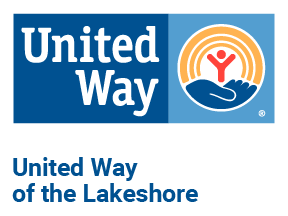Michigan recognizes Overdose Awareness Day and launches new partnership with EMS to provide more overdose antidote kits
Naloxone leave-behind program aims to reduce overdose deaths
In honor of Overdose Awareness Day, the Michigan Department of Health and Human Services (MDHHS) is launching a new program with emergency medical services (EMS) providers to further prevent opioid overdose deaths. EMS providers will give overdose survivors extra naloxone kits – the medication that reverses opioid overdoses.
In 2018, overdoses killed 2,599 Michiganders. Nearly 80 percent of those deaths involved opioids, continuing an epidemic that has devastated countless families. Overdose Awareness Day memorializes the individuals whose lives have been lost to an overdose, and marks an occasion to offer support to the family, friends and communities impacted by this epidemic. The observance provides a call to action for continued bold steps to address the opioid crisis.
“Far too many Michiganders die from opioid overdoses and tragically the opioid crisis has only gotten worse during the pandemic,” said Robert Gordon, MDHHS director. “That’s why MDHHS is proud to work with the state’s EMS providers to give Michigan families another resource to prevent overdose deaths. It is more urgent than ever that we take decisive action to prevent overdose deaths and dismantle the stigma around addiction.”
Opioid overdose is a preventable cause of death. Michiganders can take steps to prevent overdose deaths by carrying naloxone; offering support to family and friends who use substances; and ending the stigma that surrounds substance use disorders.
These actions are even more urgent today as overdoses have surged during the COVID-19 pandemic. MDHHS data shows that EMS responses for opioid overdose increased by 33 percent from April to May 2020, and still remain elevated. From April through July 2020, EMS responses for opioid overdose were 22 percent higher than the same period last year.
MDHHS, in partnership with EMS agencies, is launching the EMS Naloxone Leave Behind Program to address these urgent needs and get naloxone into the hands of people who need it most. This program will allow first responders to leave behind extra naloxone kits with the patient, family and friends, or bystanders at the scene of a non-fatal overdose. Survivors are at high risk for repeated overdoses, so providing naloxone to these individuals and their loved ones is particularly important. Each kit will include naloxone and instructions on overdose response.
“Michigan’s EMS providers are standing by 24/7 to treat medical emergencies including helping prevent overdose deaths,” said Jack Fisher, Michigan Association of Ambulance Services (MAAS) president and executive director of Medic 1 Ambulance in Berrien County. “We look forward to having this extra resource to combat the serious overdose problem in our state, but still urge Michiganders to call 911 in all emergencies, even if naloxone has already been administered.”
Michigan’s EMS providers have been carrying and treating overdoses with naloxone for more than 30 years, according to MAAS. Going forward, local jurisdictions will determine whether to adopt the new leave-behind program. MDHHS has developed protocols for the program – local EMS governing boards, called Medical Control Authorities, will determine whether to adopt the program in each local jurisdiction.
During the COVID-19 pandemic, there has been an increase in the number of EMS-treated overdose patients that have declined transport to an emergency department. This indicates that EMS staff may be the only healthcare providers many individuals interact with following an overdose and underscores the urgency of this new naloxone leave behind program.
MDHHS continues to use every available tool to combat the opioid epidemic during this challenging time, including ensuring continued access to Syringe Service Programs (SSPs) and treatment programs, as well as increasing access to naloxone. For individuals who are not ready to access treatment, MDHHS also recommends safer drug use to prevent further injury and death due to overdose. MDHHS urges Michiganders to use the following treatment and safer drug use resources:
If you or someone you know uses opioids:
- Access resources to support the mental and physical health of those with substance use disorder during the COVID-19 pandemic.
- Contact your primary care provider before you run low on necessary medications.
- If you need access to a medical provider, contact your nearest Federally Qualified Health Center for support.
- Ensure naloxone is readily available. Naloxone for All and NEXT Distro will mail naloxone at no cost to anyone in Michigan. Individuals can request naloxone online. MDHHS has also created an online naloxone portal where community organizations can request free naloxone.
- Practice safer drug use (safety practices that prevent overdose deaths) and encourage others to do the same. More information is available in Safer Drug Use during the COVID-19 Outbreak.
- Never Use Alone is a service anyone can call while using drugs. The caller will be connected to a person who will seek emergency services for them if they drop off the line or don’t respond to a return call. Call 800-484-3731 or visit com to learn more.
- Find an SSP near you that can provide sterile needles, naloxone and other life-saving resources.
If you or someone you know would like to seek treatment for opioid use:
- Treatment centers are still open during COVID-19 and many are offering telemedicine services.
If you or someone you know is in recovery:
- Reach out with a phone call, text or email to let him or her know you are there. Model good coping behaviors yourself.
- Share the COVID-19 hotline number (888-535-6136) and tell them to press “8” for free emotional support counseling.
- Direct them to Michigan.gov/StayWell for a list of other help lines, including a peer “warm line” for individuals in distress who want to talk to someone who understands substance use disorders, the National Disaster Distress Helpline at 800-985-5990 and the National Suicide Prevention Lifeline at 800-273-8255.
- Call 211. Anyone struggling or seeking resources for substance use treatment services can call this free service that connects Michigan residents with health resources in their communities.
For more information about overdoses and resources for prevention and treatment, visit Michigan.gov/opioids

